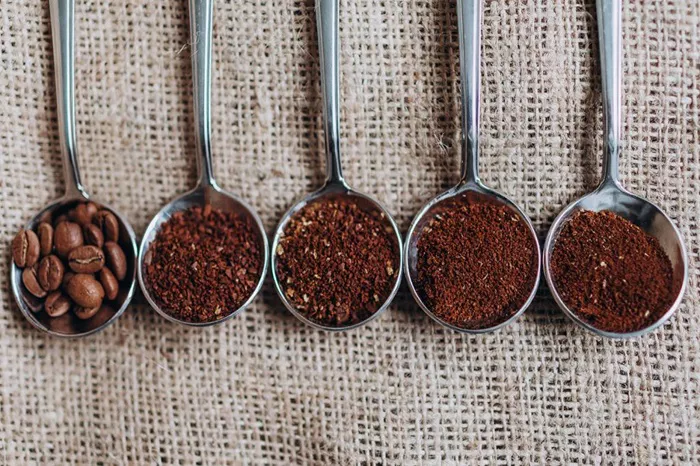Grinding whole bean coffee is a crucial step in making the perfect cup of coffee. Freshly ground coffee beans release rich aromas and flavors that pre-ground coffee simply cannot match. In this article, we will explore the importance of grinding your coffee beans, different methods to grind them, tips for achieving the right grind size, and much more.
Why Grind Whole Bean Coffee?
Freshness
Whole beans retain their freshness longer than pre-ground coffee. Grinding them just before brewing helps to preserve the essential oils and flavors.
Flavor Enhancement
Grinding coffee beans releases volatile compounds that contribute to a rich flavor profile. Freshly ground coffee has a more robust taste.
Custom Grind Size
Different brewing methods require different grind sizes. Grinding your own beans allows you to adjust the grind size for optimal extraction.
Control Over the Brew
Grinding your own coffee gives you more control over the brewing process. You can experiment with different grind sizes to find what works best for your taste preferences.
Types of Coffee Grinders
When it comes to grinding coffee, there are two main types of grinders: blade grinders and burr grinders. Each has its own advantages and disadvantages.
Blade Grinders
How They Work
Blade grinders use sharp blades to chop the coffee beans into smaller pieces. The longer you grind, the finer the coffee will be.
Pros
Affordable
Compact and lightweight
Easy to use
Cons
Inconsistent grind size
Heat generated can affect flavor
Difficult to achieve the desired grind size
Burr Grinders
How They Work
Burr grinders crush the coffee beans between two surfaces, providing a more consistent grind size. They come in two types: flat and conical.
Pros
Consistent grind size
Better flavor extraction
Adjustable settings for various brew methods
Cons
More expensive
Larger and heavier than blade grinders
Choosing the Right Grind Size
The grind size you choose will significantly impact the flavor of your coffee. Here are common grind sizes and the brewing methods that match them.
Coarse Grind
Description
Coarse grind resembles sea salt or breadcrumbs. It is not fine and has larger particles.
Best For
French press
Cold brew
Percolator
Medium Grind
Description
Medium grind has a texture similar to granulated sugar. It is versatile and commonly used.
Best For
Drip coffee makers
Pour-over
AeroPress (with longer steep time)
Fine Grind
Description
Fine grind resembles table salt and is smooth with very small particles.
Best For
Espresso machines
Moka pots
AeroPress (with shorter steep time)
Extra Fine Grind
Description
Extra fine grind is like powdered sugar and is very fine.
Best For
Turkish coffee
Specialty espresso drinks
See Also: How Fine to Grind Coffee for Espresso
How to Grind Whole Bean Coffee
Now that you understand the importance of grinding coffee and the types of grinders available, let’s go through the steps to grind whole bean coffee.
Step 1: Choose Your Coffee Beans
Select high-quality whole bean coffee. Consider the flavor profile and roast level. Freshly roasted beans are ideal for the best taste.
Step 2: Measure Your Beans
Use a scale to measure the coffee beans. A general guideline is to use 1 to 2 tablespoons of coffee per 6 ounces of water, depending on your taste preference.
Step 3: Select Your Grinder
Choose between a blade grinder or a burr grinder. For the best results, use a burr grinder.
Step 4: Adjust Grind Settings
If using a burr grinder, adjust the grind settings according to your brewing method. Refer to the grind size guide above to make the right choice.
Step 5: Grind the Coffee
For Blade Grinders
Add the measured beans to the grinder.
Pulse the grinder in short bursts to achieve the desired grind size.
Shake the grinder occasionally to ensure even grinding.
For Burr Grinders
Add the beans to the hopper.
Start the grinder and let it run until the desired grind size is achieved.
Step 6: Store Your Ground Coffee
If you are not using the ground coffee immediately, store it in an airtight container in a cool, dark place. Ground coffee loses freshness quickly, so it is best to grind just what you need.
Tips for Grinding Coffee
Use Fresh Beans
Always use fresh, high-quality beans for the best flavor. Avoid stale or low-quality beans.
Grind Just Before Brewing
Grind your coffee just before brewing to maximize freshness and flavor.
Experiment with Grind Size
Don’t be afraid to experiment with different grind sizes to find your perfect cup. Adjust based on taste and brewing method.
Clean Your Grinder Regularly
Clean your grinder to prevent buildup of oils and residues. This ensures a clean grind and preserves flavors.
Avoid Overheating
If using a blade grinder, avoid grinding for too long. Overheating can negatively impact the flavor.
Brewing Methods and Their Grind Sizes
Understanding how grind size affects different brewing methods is crucial for achieving the best flavor. Here are common brewing methods and their corresponding grind sizes.
1. French Press
Grind Size: Coarse
Brewing Time: 4 minutes
Tips: Use a 1:15 coffee-to-water ratio. Let it steep before pressing down the plunger.
2. Drip Coffee Maker
Grind Size: Medium
Brewing Time: 5-8 minutes
Tips: Use a paper filter for clean flavors. Adjust the coffee-to-water ratio to taste.
3. Pour-Over
Grind Size: Medium
Brewing Time: 2-4 minutes
Tips: Use a gooseneck kettle for control. Bloom the coffee before the full brew.
4. Espresso
Grind Size: Fine
Brewing Time: 25-30 seconds
Tips: Use a 1:2 coffee-to-water ratio. Tamping is essential for even extraction.
5. Cold Brew
Grind Size: Coarse
Brewing Time: 12-24 hours
Tips: Use a larger coffee-to-water ratio. Strain the grounds after brewing.
Conclusion
Grinding whole bean coffee is an essential part of the coffee brewing process. The freshness and flavor released from freshly ground beans can significantly enhance your coffee experience. By understanding the different types of grinders, grind sizes, and brewing methods, you can create a delicious cup tailored to your taste preferences. Remember to experiment, stay mindful of freshness, and enjoy the art of brewing coffee.


